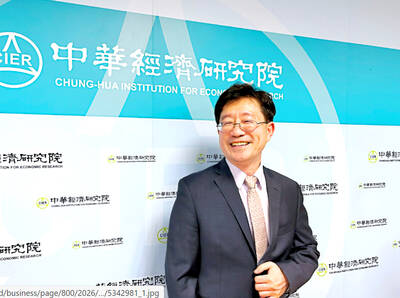A ban on on-site factory dormitories is not to be imposed any time soon, because it would require amendments to the regulations, which must be preceded by inter-ministerial discussions, the Ministry of Labor said on Thursday.
Workforce Development Agency section head Hsueh Chien-chung (薛鑑忠) said the agency would have to coordinate with the Ministry of Economic Affairs on the amendments.
In May and June, various non-governmental organizations staged protests about worker housing safety issues, after two factory fires claimed the lives of nearly a dozen migrant workers in factory dorms this year.
One of the demands made by the protesters was for worker dormitories to be relocated a safe distance from factories.
The Ministry of Labor is working on new regulations to ban on-site factory dormitories and also to penalize businesses that do not implement proper safety measures for migrant workers, Hsueh said.
If approved by the legislature, the amendments to Articles 54 and 72 of the Employment Service Act (就業服務法) would lower the quota of foreign hires by five for every migrant worker death resulting from negligence by the company, he said.
In the case of injury to a migrant worker, the quota would be reduced by one worker for each incident, Hsueh said, adding that the ministry would provide more details next week.
There were 699,379 migrant workers in the nation as of last month, the latest government statistics showed.

The Grand Hotel Taipei on Saturday confirmed that its information system had been illegally accessed and expressed its deepest apologies for the concern it has caused its customers, adding that the issue is being investigated by the Ministry of Justice Investigation Bureau. The hotel said that on Tuesday last week, it had discovered an external illegal intrusion into its information system. An initial digital forensic investigation confirmed that parts of the system had been accessed, it said, adding that the possibility that some customer data were stolen and leaked could not be ruled out. The actual scope and content of the affected data

DO THEY BITE IT? Cats have better memories than people might think, but their motivation is based entirely around the chance of getting fed Cats can remember the identity of the people who fed them the day before, Taipei-based veterinarians said on Friday, debunking a popular myth that cats have a short memory. If a stray does not recognize the person who fed them the previous day, it is likely because they are not carrying food and the cat has no reason to recognize them, said Wu Chou Animal Hospital head Chen Chen-huan (陳震寰). “When cats come to a human bearing food, it is coming for the food, not the person,” he said. “The food is the key.” Since the cat’s attention is on the food, it

‘LIKE-MINDED PARTNER’: Tako van Popta said it would be inappropriate to delay signing the deal with Taiwan because of China, adding he would promote the issue Canadian senators have stressed Taiwan’s importance for international trade and expressed enthusiasm for ensuring the Taiwan-Canada trade cooperation framework agreement is implemented this year. Representative to Canada Harry Tseng (曾厚仁) in an interview with the Central News Agency (CNA) said he was increasingly uneasy about Ottawa’s delays in signing the agreement, especially as Ottawa has warmed toward Beijing. There are “no negotiations left. Not only [is it] initialed, we have three versions of the text ready: English, French and Mandarin,” Tseng said. “That tells you how close we are to the final signature.” Tseng said that he hoped Canadian Prime Minister Mark Carney

Taiwan must act to preempt potential Section 301 investigations as US President Donald Trump moves to a new tariff strategy, following a US Supreme Court ruling that voided tariff measures, an academic said yesterday. Countries running the largest trade surpluses with the US face a growing likelihood of Section 301 investigations, Chung-Hua Institution for Economic Research president Lien Hsien-ming (連賢明) said. Section 301 refers to a provision of the Trade Act of 1974 that allows Washington to impose retaliatory tariffs over perceived unfair trade practices, including the running of large trade surpluses. Because Taiwan has become the fourth-largest source of the US’ trade